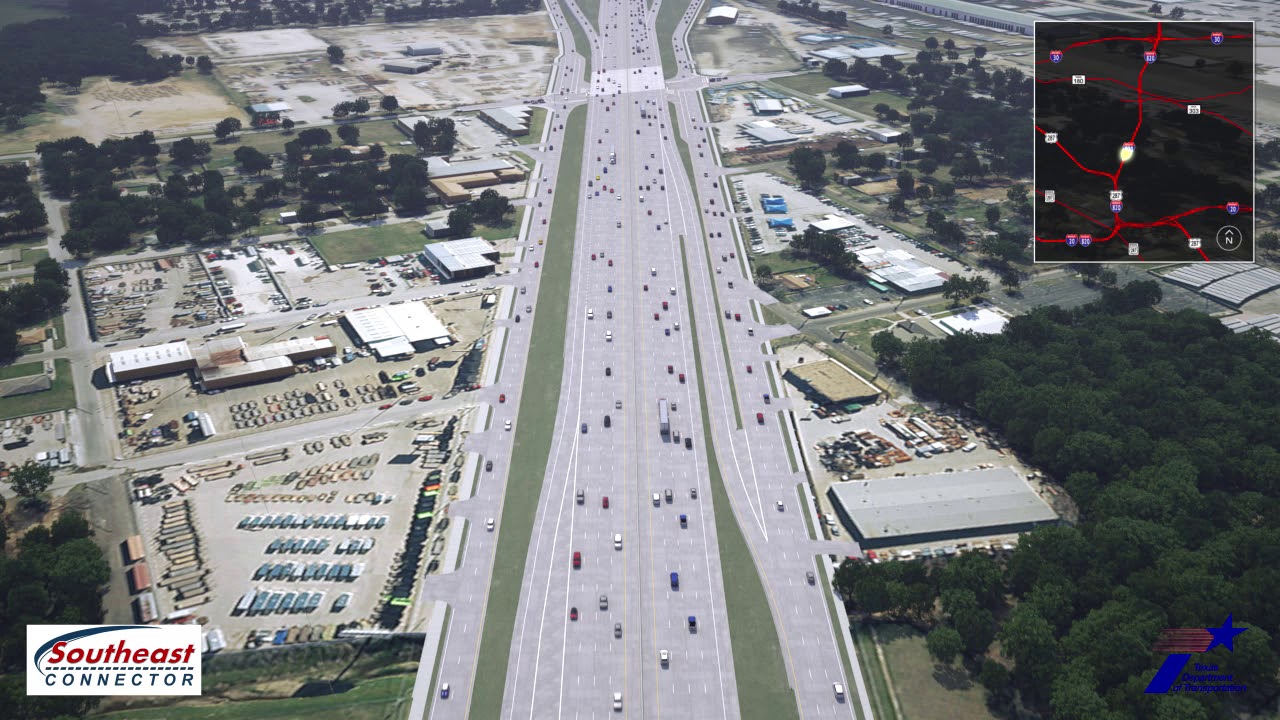In this year’s installment of its annual Highway Boondoggles report, U.S. PIRG Education Fund and Frontier Group warn of billions of dollars in proposed spending on unnecessary highway projects that would divide our communities, deprive transit of scarce funds, and pollute our air and water. Below is the last of seven installments detailing these harmful projects.

The Texas Department of Transportation is moving ahead with a $2-billion expansion of three highways in Fort Worth that would induce sprawl and damage communities, even as the local transit system scrambles for funding to provide adequate service. Referred to as the Southeast Connector, the project involves expansion of 16 miles of I-820, I-20 and I-287 on the east side of Fort Worth, adding up to six lanes in each direction in some places, as well as interchange renovations.
A Texas DOT analysis of the Southeast Connector suggests it will lead to sprawling development, including the development of 126 acres along all three highways, which are in outlying Fort Worth. These impacts would run counter to city efforts to reduce sprawl. In its economic development strategic plan, the city of Fort Worth set out the goal of “rapidly increasing the density” of the city, and is continuing to buy land outside the city to prevent sprawl and preserve land. The Dallas Morning News has described the area’s sprawling development as causing longer commutes, degraded air quality, strained water supplies and poorly maintained infrastructure. A 2014 report by Smart Growth America ranked Fort Worth among the most sprawling cities in the country.

The $1.6-billion project would also use valuable resources even as basic transit needs in Fort Worth go unmet. In 2020, Jeff Davis, board chairman of the Trinity Metro system, told the Fort Worth Star Telegram that the current system is “bare bones” and that “we don’t have the funds to meet the needs” of current demand. Fort Worth has too few bus routes, inadequate passenger rail service and receives too little funding to expand with the growth of the city. Service on some routes is too infrequent and ends too early to be useful.
In a plan designed to address these shortcomings, the transit authority and the city laid out goals to develop high-capacity transit services, increase the length and frequency of current services, add new routes and make the whole system more accessible and easier to use. But although the transit authority requested $10 million from the 2021 budget in order to make short-term improvements and additional funding to begin longer-term work, the budget ultimately approved allocated just $1.5 million for transit work. Transit in Fort Worth is primarily funded by trip fares, local sales tax and federal grants, while the Southeast Connector is funded by a mix of state and federal dollars.
Finally, local residents worry about impacts of the construction and larger roads on the community. The TxDOT Community Impacts Assessment states that the construction of the Southeast Connector, which is expected to last five years, will require displacing 23 families from their homes, eight of which are not anticipated to be able to find other housing in the neighborhood. Residents are worried that the already uncomfortably loud noise from the highway will get even louder, while Texas DOT does not plan to put sound barriers in place to protect them.
Other residents worry about the 15 acres of trees in danger of removal, since those trees separate them from the highway aurally and visually. Some residents are also concerned that the project will create a whole new “traffic nightmare,” as reported by NBC Dallas-Fort Worth, because the removal of two on-ramps will create a new traffic bottleneck at the connection of I-820 with Brentwood Stair Road.






